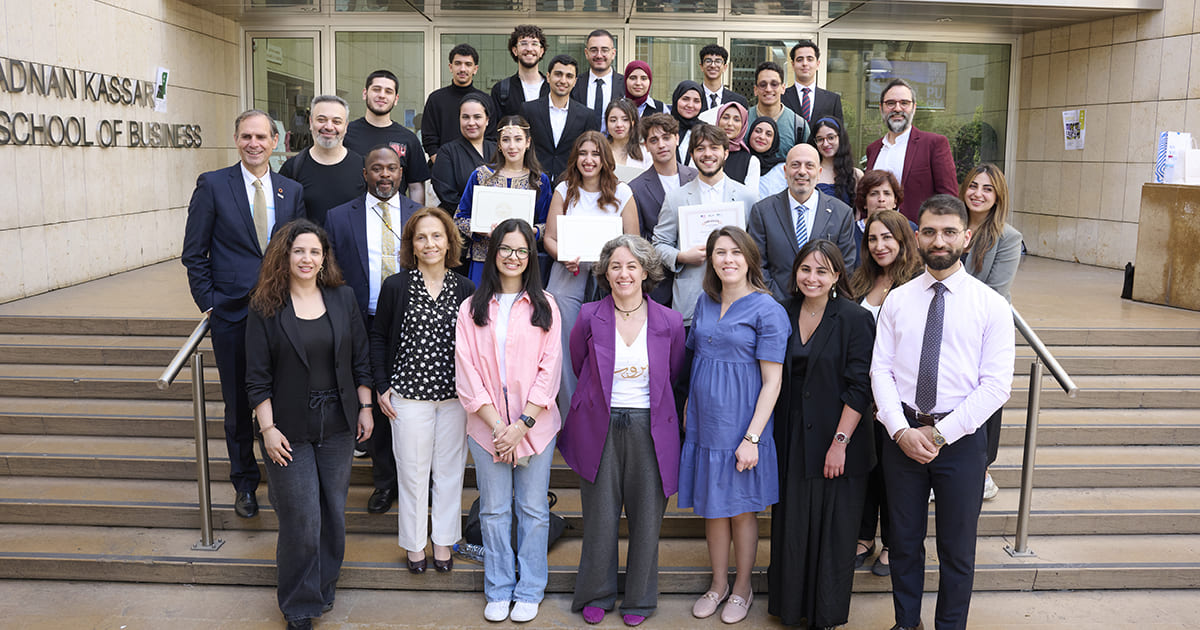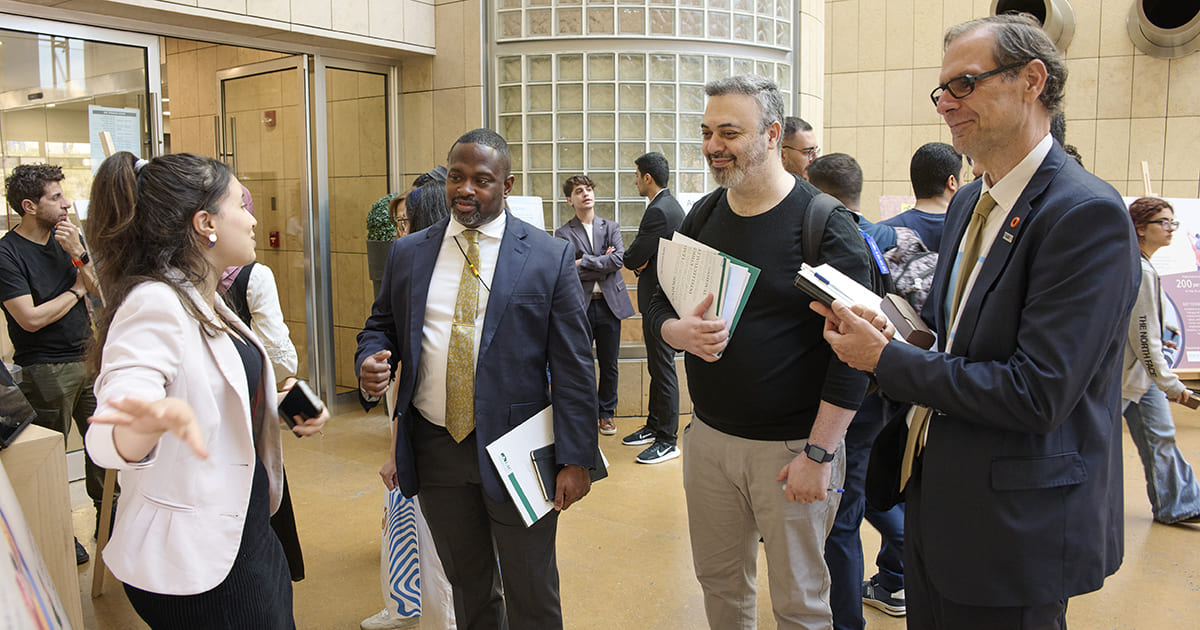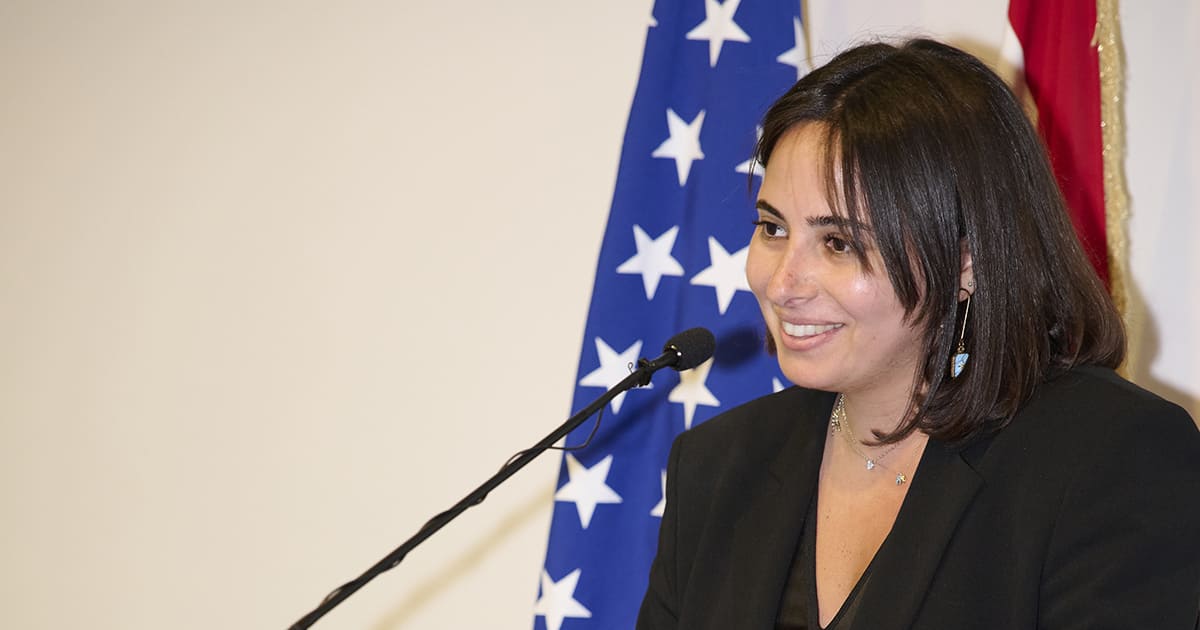Tomorrow’s Leaders Turn Challenges into Opportunities
The 2025 cohort of the U.S. Middle East Partnership Initiative–Tomorrow’s Leaders undergraduate scholars propose pertinent developmental projects at the annual Capstone Day.
Sixteen transformative ideas that pushed the envelope on economic development, social justice, heritage and cultural preservation and engaging youth in nation-building, among others, lined the lobby of the Adnan Kassar School of Business on April 25, 2025.
The U.S. Middle East Partnership Initiative–Tomorrow’s Leaders (MEPI–TL) Capstone Day showcased innovative projects developed by senior undergraduate scholars.
Students from Iraq, Yemen, Algeria, the West Bank, Jordan, Lebanon, Morocco, Syria, Libya and Egypt, presented their projects to a distinguished jury. The panel included LAU faculty members, a representative from the U.S. Embassy and alumnus Osama Shamout (BS ’23).
Offering some insights about the MEPI–TL program, Associate Professor and TLU Capstone Project Coordinator Ramzi Haraty emphasized its leadership and character-building component.
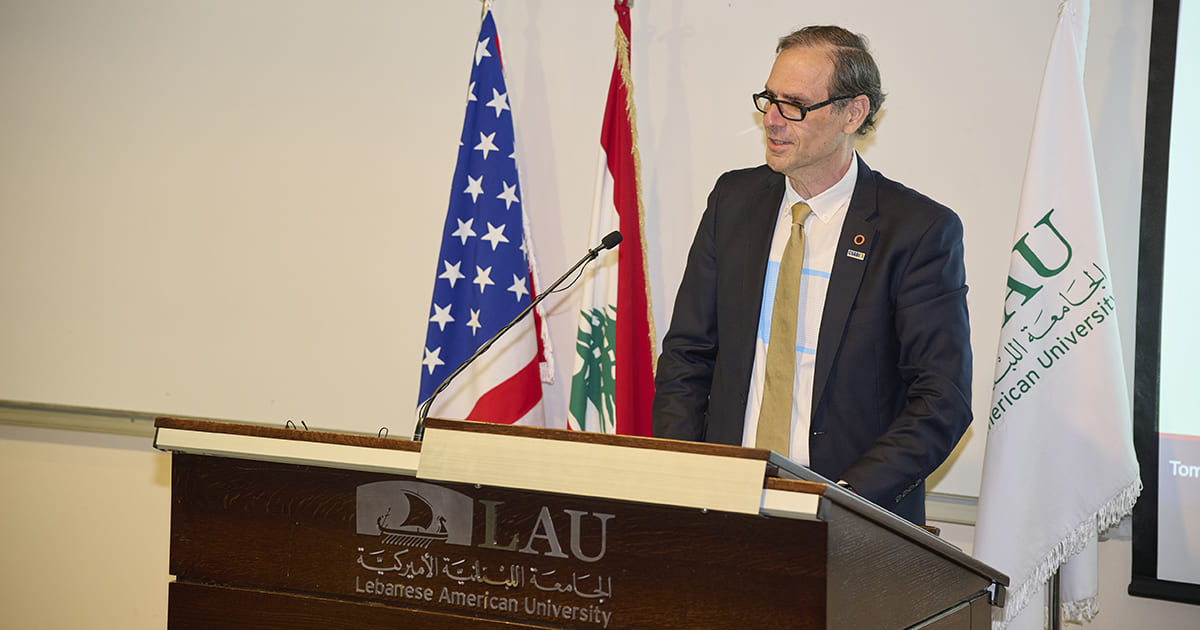
“The 16 projects that our students have diligently worked on attest to the different leadership skills that we try to instill in them,” he said. While preparing them,” he added, the scholars were challenged to “churn ideas into goals, and to be creative and innovative.”
David Lewis, MEPI Coordinator at the U.S. Embassy in Beirut, expressed his admiration for the students’ energy, dedication, and commitment to their communities.
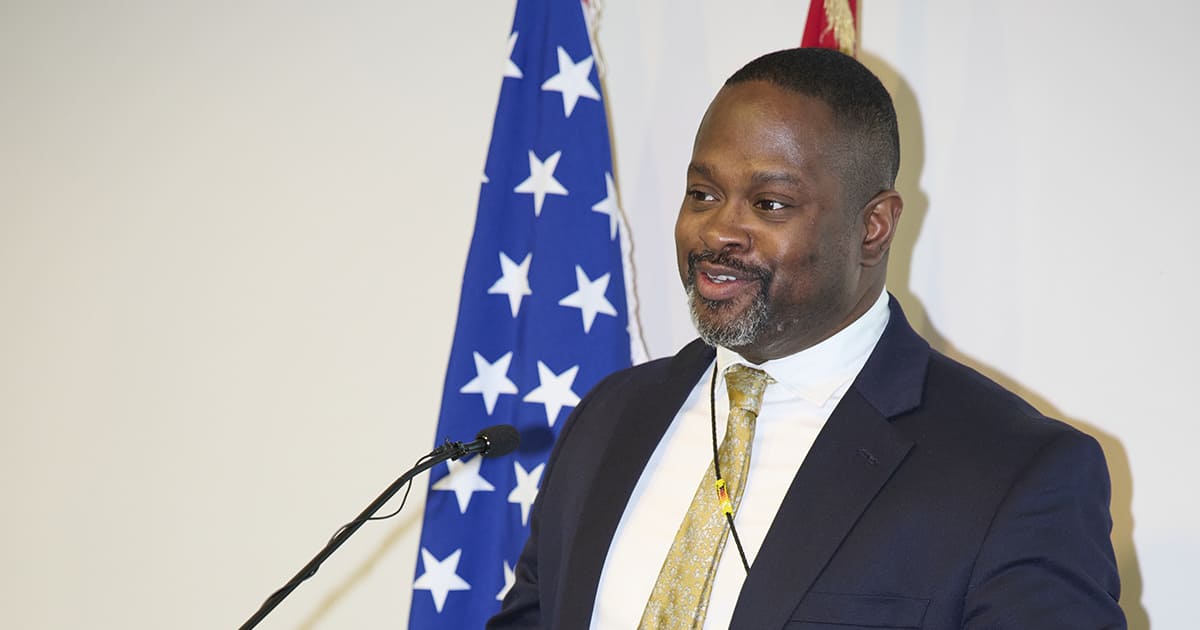
“It is always a pleasure to see how you use your training in community service to come up with these wonderful ideas that will help drive change, not only in your home countries but in the region as a whole,” he said, addressing the scholars.
MEPI–TL Executive Director Dina Abdul Rahman noted that Capstone Day is a culmination of the students’ growth, especially as they worked tirelessly on their projects despite facing challenging circumstances, including evacuation and displacement during the recent war.
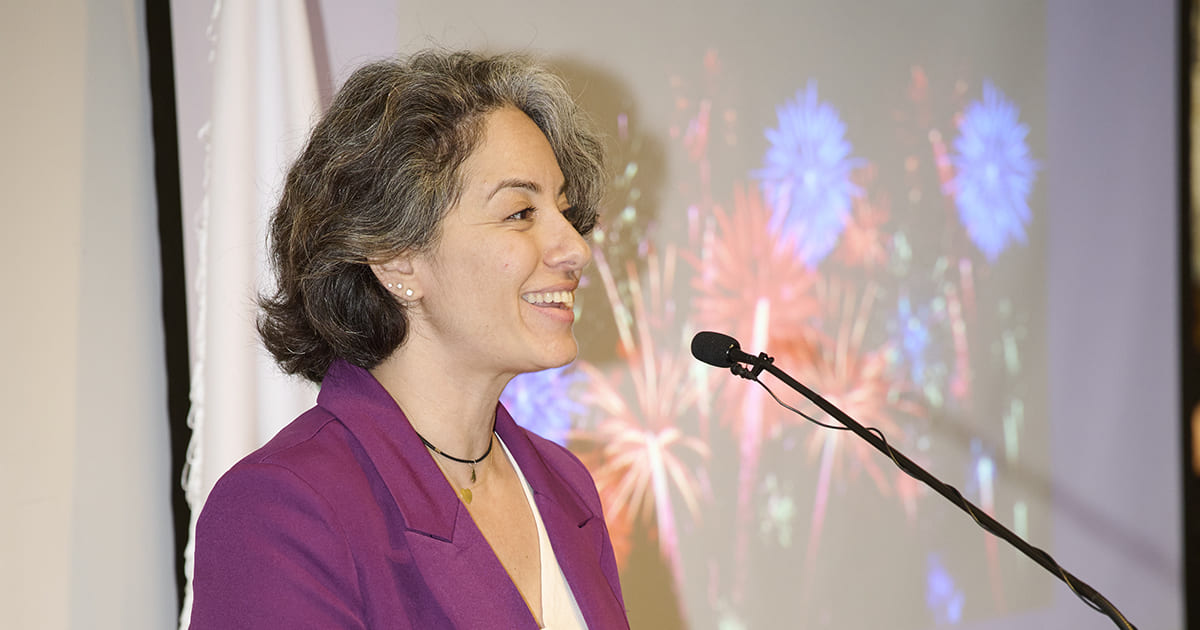
“This is a testament that no matter how tough the experiences we live through, what is so inspiring about this program is how we continue to push forward together, and you always prove us right by coming out as winners,” said Abdul Rahman.
The top project, Taxia, by Tunisian marketing student Rima Sfaxi, translates into “my taxi” and “a female taxi driver” in colloquial Tunisian Arabic. The initiative advocates for making the transportation sector in Tunisia safer and more welcoming for female drivers to enter the workforce.
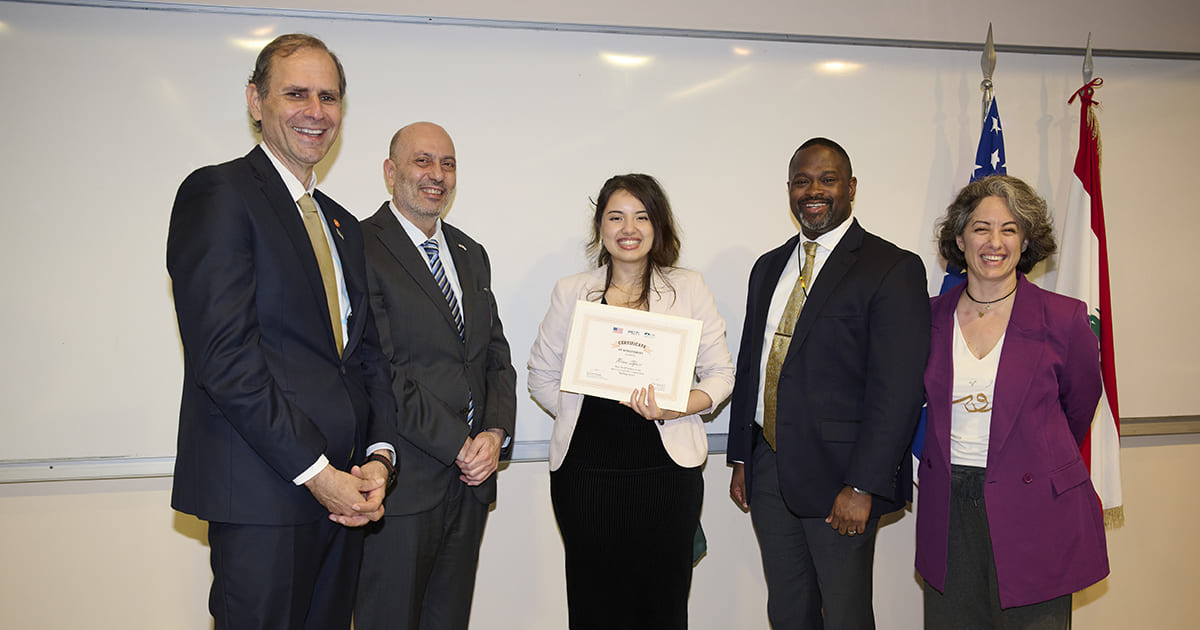
In second place, Lazo Ali’s project Zanistge, Kurdish for “the house of science,” aims to make scientific content available to Kurdish speakers by breaking the language barrier.
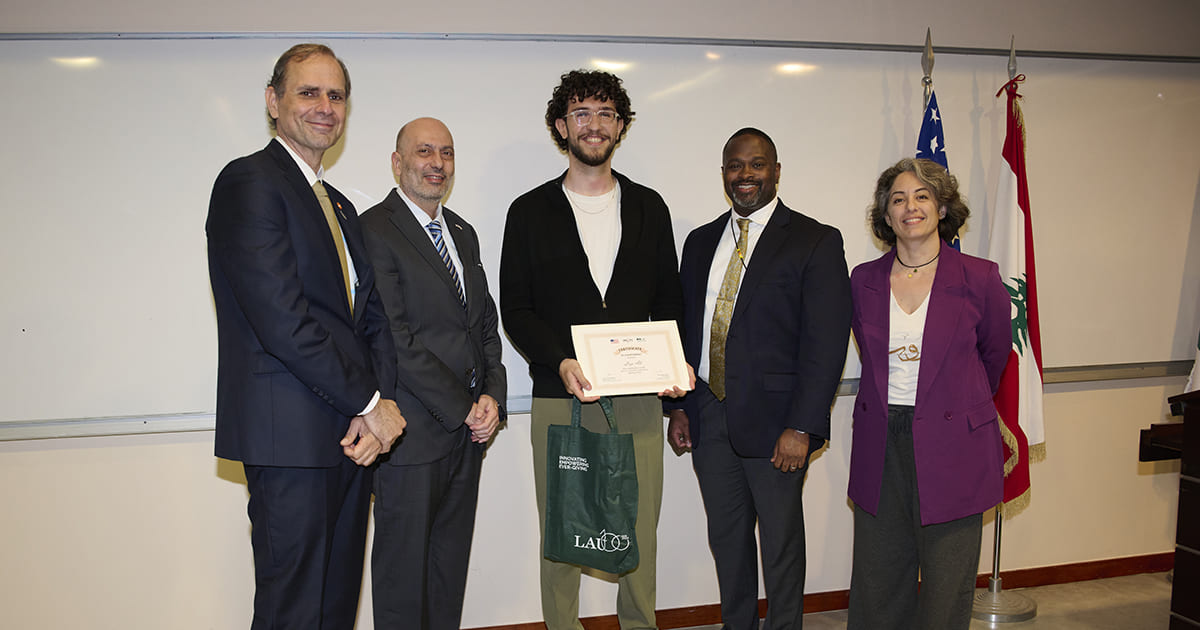
Securing third place, Abdul Rahman Al-Zaatari’s project ExpatConnect Global, bridges expatriates and locals through a swipe-based AI functionality to facilitate cultural exchange, networking, and community support.
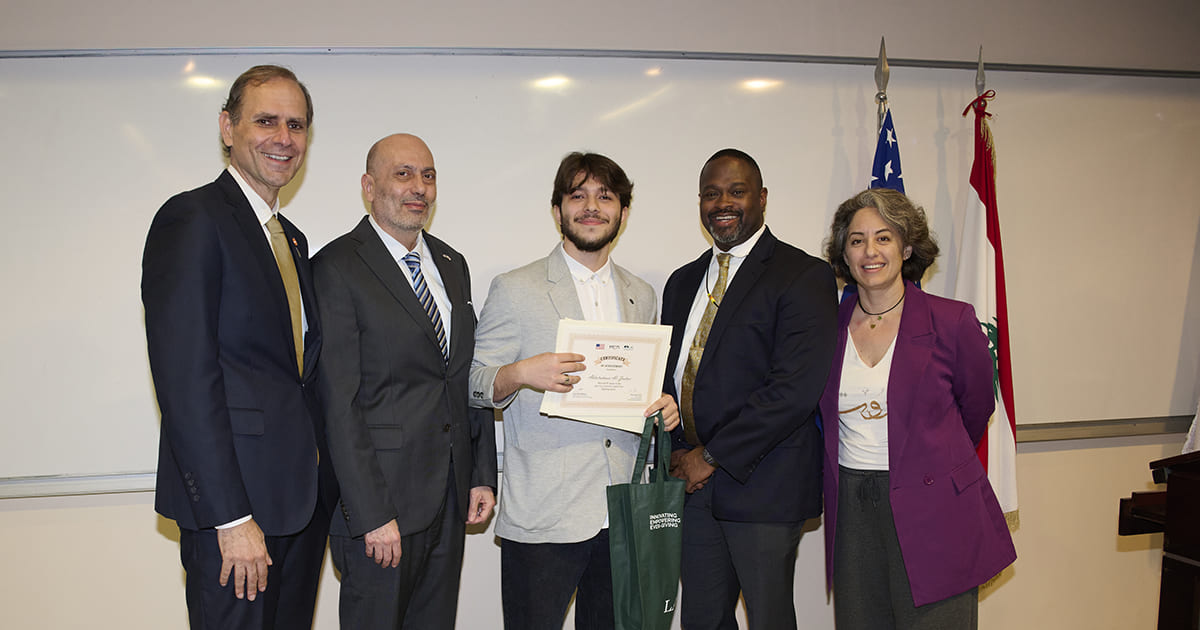
All the projects presented at Capstone Day will be reviewed by the LAU Innovation Center, which will support the students if they wish to secure incubation funding for their ideas.
